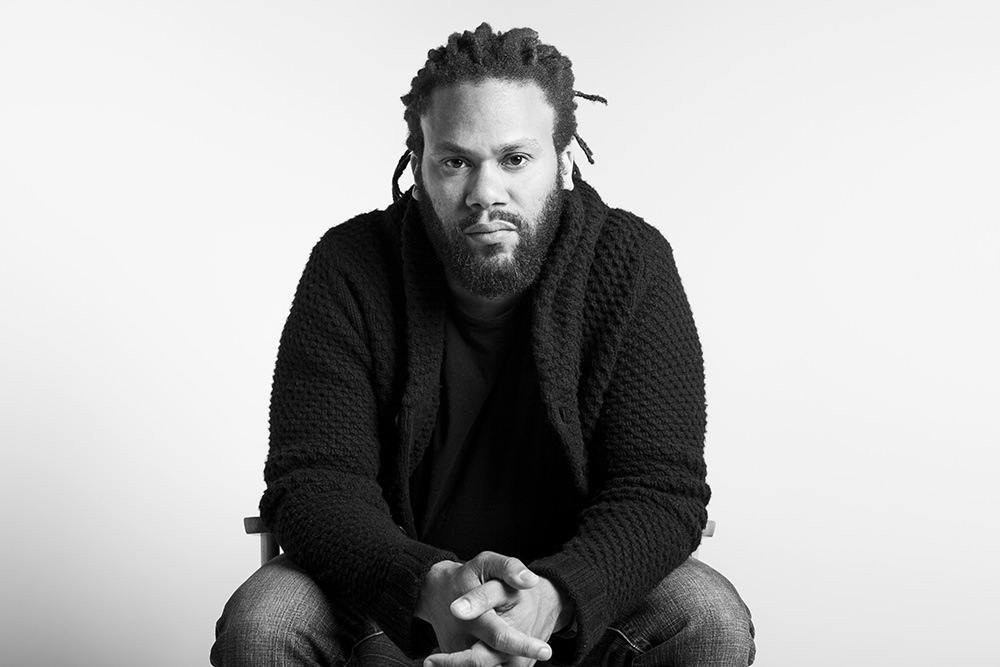The Black List USA: Calling Aussie Screenwriters
The Black List founder Franklin Leonard on how the company is partnering with Warner Bros. and Veerhuis Pictures to help unearth Australian screenwriting talent.
 Franklin Leonard
Franklin Leonard
For The Black List’s first purely international partnership, the company that highlights Hollywood’s favourite unproduced screenplays is turning its sights to Australia.
The Black List was founded by Franklin Leonard in 2005, when it produced an annual survey of Hollywood executives’ “most-liked” unproduced screenplays. Since then, more than 400 Black List scripts have been produced and won 53 Academy Awards, including Slumdog Millionaire, Juno, The King’s Speech and I, Tonya. But it’s also evolved into creating screenwriting workshops, live script readings and opportunities to find new talent.
West Australian-based producer Chris Veerhuis (who was a co-producer on Breath and Red Dog: TRUE BLUE) heard of how The Black List had helped Warner Bros. Pictures identify writers from historically under-represented communities in the US and reached out to Leonard.
“He said he would love to find a way to identify a strong up-and-coming Australian writer, who for whatever reason hasn't had the opportunities that their talent likely deserves, and deploy The Black List to help them do that,” Leonard says.
Veerhuis and Leonard met up at Toronto International Film Festival in 2017 (where Breath made its world premiere), worked through the details and the inaugural Australian Script Writing Opportunity was opened for submissions in June 2018.
Finalists for the opportunity will be considered for a two-step blind feature film writing deal as part of the partnership with Warner Bros. and Veerhuis Pictures.
“Writers can host scripts on The Black List website and at the end of the opt-in period, we will review all the submissions and all of the data and identify a shortlist, which we will then pass along to Chris (Veerhuis) and Warner Bros.,” Leonard says.
“They will review it and make a decision about who to offer a blind deal to. The Black List compiles the shortlist and the actual decision in the final stage of the process is completed by Warner Bros. and Chris (Veerhuis).”
Australians have cropped up on the annual Black List before – Christopher Weekes topped the list in 2009 with his Jim Henson biopic The Muppet Man, and more recently, in 2016, Michael Lloyd Green’s Mother (now titled I Am Mother) featured on the list. It’s now in post-production after filming in South Australia with Hilary Swank in a starring role and Grant Sputore directing.
But the Inaugural Script Writing Opportunity differs from the annual list. It’s an opportunity created specifically for Australians to uncover a new and exciting voice.
“This is our first sort of purely international partnership and we're incredibly excited to find an Australian writer who will not only surprise and dazzle the Australian industry but movie fans around the world,” Leonard says.
So if you want to apply, what do you need to do?
1. Meet the eligibility criteria (first time writers are encouraged to take part).
Are you an Australian citizen or permanent resident? At least 18 years old? Do you have writing credits on no more than one feature film or three hours of broadcast TV (or a combination of both)? Great! You can apply.
2. Have a great idea, and write it well.
It’s an obvious one, but Leonard says lots of people get lost thinking about whether their script can make millions of dollars, or if it’s formatted the right way. Knowing your audience and formatting are necessary, “but fundamentally the most important thing… is to write a screenplay that is a good story, well told.”
3. Host your screenplay on The Black List.
It costs US$25 a script/month to host on The Black List – click here for more.
4. Opt-in for the Australian Script Writing Opportunity.
“You have to click on a link basically to say, ‘hey I'm an Australian writer, I'd like to be considered for this’,” says Leonard.
5. Try and get it evaluated.
It’s where you pay to have one of The Black List’s readers evaluate your script. It’s not necessary, but it does increase the attention and data set around your script. It costs US$75 per script and connects it with a reader who specialises in that genre. Don’t have the cash? Follow The Black List Facebook, Instagram and Twitter, where they give out free evaluations, or generate views via your own social media, or contribute to The Essentials and Why We Write blogs for a free month of hosting and one free evaluation.
6. Meet the deadline. The evaluation deadline is 13 August and then the final deadline is 13 September at 11.59PM AEST.
Yes, there are two deadlines. The first is for evaluations – if you purchase an evaluation after that date, The Black List can’t guarantee it will be included in the data they build a shortlist from. The final deadline is your last possible chance to opt-in for the opportunity.
Read below for more details about the opportunity, as well as some of Leonard’s thoughts on the industry at the moment, and The Black List’s place within that:
 I, Tonya was on the 2016 annual Black List / Roadshow Films
I, Tonya was on the 2016 annual Black List / Roadshow Films
Do you have any advice in terms of genre or number of pages you should write?
The sky's the limit in terms of genre. We're certainly a genre-agnostic platform and everything we're sending [to Warner Bros. and Veerhuis Picture] are samples for a blind deal. So the idea is the work you're submitting is designed to show you can write… so I wouldn't worry or give too much thought to genre. In terms of length I wouldn't go over a hundred and twenty pages. It is rare that a screenplay can justify a length beyond that. It would be great if the scripts were set in Australia but that's certainly not a requirement for anyone.
The finalists for the Australian Script Writing Opportunity are considered for a two-step blind feature film writing deal. What’s a blind deal?
A blind deal is essentially a commitment from a film financier. It's a sort of statement of intent that they're going to commit to paying a writer – in this case the Writers’ Guild of America minimum – for two drafts of a screenplay. So once they commit to giving you a blind deal, then the writer and the producer and financier have to come together and have a conversation about what it is they want you to write. And typically that means the writer will pitch to the producer and financier several ideas, or the producer and financier may say ‘we have this article or this book or this graphic novel that we want to turn into a film, is that something that interests you?’ and then eventually all parties will settle on one idea and the writer will go off and write that.
Do you have to have an evaluation?
Our goal is obviously to pass along to Chris Veerhuis and Warner Bros. the best possible writers. And the only way we have to identify whether something is good are the evaluations, so we strongly encourage people who are hosting with us within The Black List website to purchase at least one evaluation. We don't require it, though we do strongly advise it. If the US$75 evaluation purchase is a real financial burden people would be wise to follow the social media, read The Black List blog - we offer a tonne of essentially free hostings and evaluations that can be gained through sweat equity or writing equity rather than financial equity.
Who reads the script if you’ve paid for an evaluation?
All of our readers have worked for at least a year as assistants at a major Hollywood production company or studio or agency. But they are all familiar with the marketplace. We only assign readers who have interest in that genre, so if you've written a romantic comedy, you're not going to have a horror aficionado reading your script and vice versa.
What was the original intention of The Black List and how has that evolved since 2005?
The first annual Black List was a survey that I created because I was just trying to find some good screenplays to read over the winter holidays. Very quickly I realised that it had greater value than simply that – that it was a very efficient process to identify and simultaneously celebrate great screenwriting and the people that could do it. That has really continued to be our north star in the organisation - identifying and celebrating great writing. So we've expanded our ability to do that whether it's the website that allows us to source great writing from all over the world, whether it's our live stage script readings that we do in New York and Los Angeles every year, or whether it's our Annual Feature Screenwriters Lab, which gathers together a small group of exceptional up and coming writers and gives them additional training by working with professional writers.
What is the biggest challenge facing The Black List now?
The most important things for us is continuing to improve the efficiency and the process of which we identify good work. I think we do that better than anyone else at this stage, but our ability to do that is our stock-in-trade and so we're always focused on improving that. And the second most important thing and the biggest challenge for me is dismantling the assumption Hollywood makes about where great writing comes from. There are these assumptions that only good writing comes from people who look a certain way, who come from a certain place, who have a certain kind of education. And I think from what we've seen time and time again is that it is not the only place where great writing comes from, in fact great writing can come from anywhere, regardless of borders, regardless of identity, regardless of educational background, regardless of age. And it's important for us to continue to prove that thesis by sourcing great writers from around the world with identities as diverse as the world is.
The industry has changed dramatically since The Black List started close to 14 years ago. How has that impacted writers?
The shift to television is a very exciting thing for everyone involved in the industry, especially writers, because obviously television at least in terms of the way it is structured in the US definitely benefits writers more than feature films do.
I also think the reduction in cost of making and distributing a movie is a boon for writers. You can write a small budget movie and find a way to be involved in the process of making it with a small coterie of people and then you can make it available to an audience without as much money as you needed 10 years ago and certainly not as much as you needed 20 years ago. And so the downward pressure on content production costs and also digital content distribution just means it's easier to make movies of a certain budget or a certain sort of scale, it's easier to distribute it, and easier to coalesce your audience. You can maintain an ongoing conversation with your audience and point them towards your next project, which allows artists of all stripes to retain value they couldn't have retained before because branding and marketing was solely the province of well-capitalized companies. Whereas now anybody can brand and market themselves via social media and the internet.
Visit https://blcklst.com/ for more info and to host your script. Read about the Australian Script Writing Opportunity Frequently Asked Questions here.

What to read next
Australian producer Kylie du Fresne from Goalpost Pictures on Upgrade, the genre feature she produced with Jason Blum.
18 Jul 2018
Caris Bizzaca